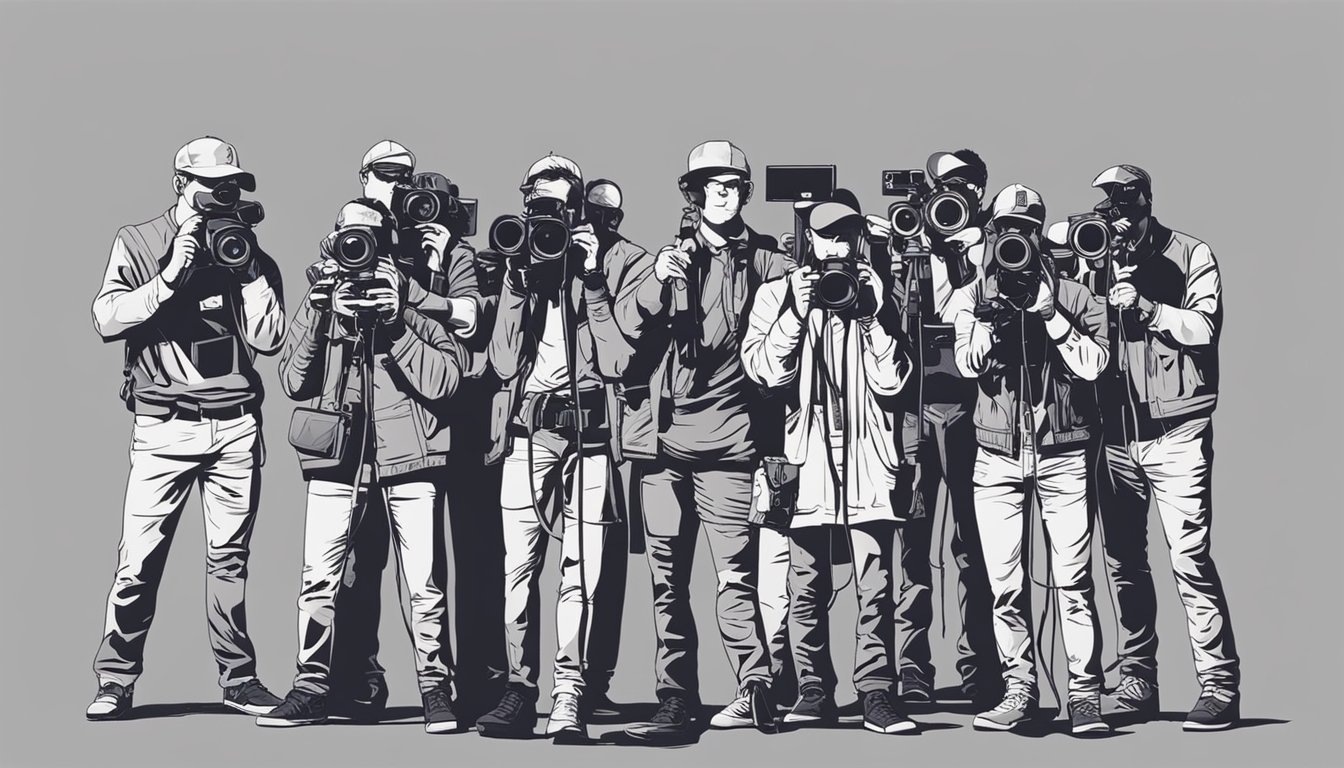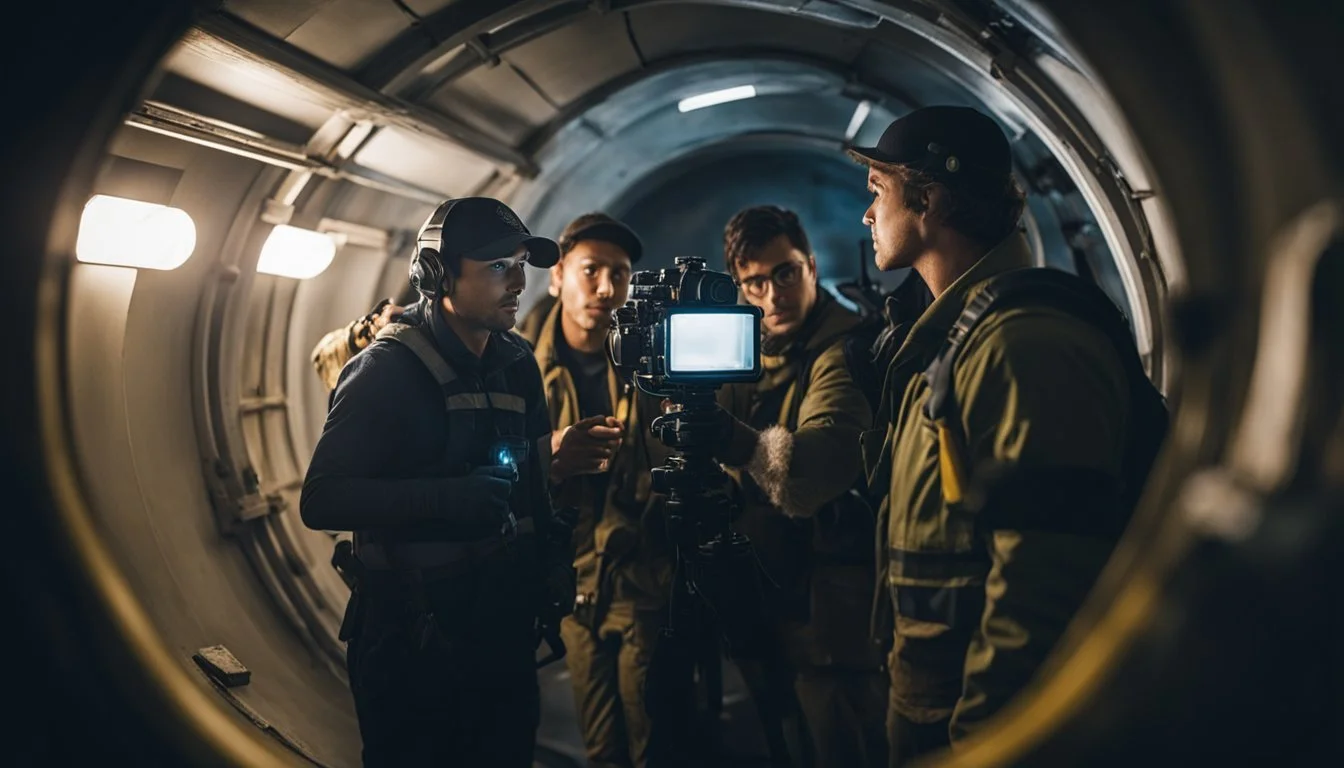The Wolfpack Documentary Navigates Privacy Issues of Filming Isolated Family
The 2015 documentary "The Wolfpack" captivated audiences with its extraordinary tale of six brothers confined to a New York City apartment for most of their lives. Director Crystal Moselle stumbled upon this remarkable story by chance, encountering the Angulo brothers on a Manhattan street. The film raises important questions about the ethics of documenting such a unique and private family situation.
The Angulo brothers, raised in isolation by their parents, experienced the world primarily through movies. Their transition from seclusion to the public eye through this documentary presents complex privacy concerns. While the film offers a fascinating glimpse into their sheltered existence, it also exposes deeply personal aspects of their lives to a global audience.
Balancing the public's interest in this unusual story with the family's right to privacy poses significant challenges. The documentary's success at the Sundance Film Festival, where it won the U.S. Documentary Grand Jury Prize, highlights the compelling nature of the Angulo brothers' story. Yet it also underscores the need for careful consideration of ethical boundaries when filming and sharing such intimate narratives.
The Inception of 'The Wolfpack'
'The Wolfpack' emerged from an unexpected encounter that led to a captivating documentary. The film's origins reveal the power of chance and observant filmmaking.
Crystal Moselle's Vision
Crystal Moselle, an American documentary filmmaker, stumbled upon an extraordinary story on the streets of New York City. Her keen eye and curiosity drove her to explore the lives of the Angulo brothers, six siblings who had spent most of their lives in isolation.
Moselle's approach to documentary filmmaking focused on capturing authentic moments and building trust with her subjects. Her vision for 'The Wolfpack' centered on revealing the brothers' unique perspective on the world, shaped by their confinement and love for cinema.
Encountering the Angulo Brothers
In 2010, Moselle first spotted the Angulo brothers walking down First Avenue in Manhattan's Lower East Side. The six young men, with their long hair and distinctive appearance, immediately caught her attention.
Intrigued, Moselle struck up a conversation with the brothers. She learned of their unusual upbringing, confined to their apartment by their father. The filmmaker recognized the potential for a compelling documentary.
Over time, Moselle gained the trust of the Angulo family. This allowed her unprecedented access to their lives and their apartment, where the brothers had spent years recreating their favorite films.
The World Inside an Apartment
The Angulo brothers' confined existence in their Lower East Side apartment created a unique microcosm. Their isolation shaped their perspectives and behaviors, with movies serving as their primary window to the outside world.
Life in Confinement
The six Angulo brothers spent most of their lives within the four walls of their New York apartment. Their father, Oscar, strictly controlled their interactions with the outside world. The family rarely left their home, sometimes venturing out only once a year.
Inside the apartment, the brothers developed their own routines and coping mechanisms. They engaged in creative activities, including reenacting scenes from their favorite films. This helped them pass time and explore their imaginations.
The confined space became a canvas for their creativity. They crafted props and costumes from everyday items found in their home. One notable creation was a Batman suit made from cereal boxes and yoga mats.
Role of Films in Isolation
Movies played a crucial role in the Angulo brothers' lives. They served as both entertainment and education, offering glimpses of a world beyond their apartment walls.
The brothers watched thousands of films during their confinement. They memorized dialogues and recreated elaborate scenes. This cinematic immersion allowed them to experience different cultures, locations, and human interactions vicariously.
Films like "Halloween" left a significant impact. The brothers often donned homemade Michael Myers masks, embodying the character's silent intensity. These movie-inspired activities provided an escape from their physical confinement and fostered a shared bond among the siblings.
Their film recreations became increasingly sophisticated over time. They transcribed entire scripts by hand and crafted intricate costumes. This dedication to cinema ultimately became their bridge to the outside world.
The Dynamics of the Angulo Family
The Angulo family's unique circumstances shaped complex relationships between parents and children, as well as among the siblings themselves. Their isolated upbringing created an intricate web of control, dependence, and mutual support.
Parental Influence and Control
Oscar Angulo exerted strict control over his family, keeping them confined to their Manhattan apartment for years. He limited their exposure to the outside world, allowing only occasional supervised outings. This extreme isolation profoundly impacted the children's development and worldview.
The mother, Susanne, played a more passive role. She homeschooled the children but was also subject to her husband's restrictive rules. The family relied heavily on films as their primary window to the world beyond their walls.
Trust within the family was complex. The children's relationship with their father was marked by fear and obedience, while their mother provided a softer presence.
Sibling Connectivity and Support
The Angulo brothers formed a tight-knit unit, relying on each other for companionship and entertainment. They recreated scenes from their favorite movies, crafting elaborate costumes and props from household items. This creative outlet helped them cope with their confined environment.
Their shared experiences fostered a strong bond. The siblings supported each other emotionally and intellectually, creating their own micro-society within the apartment walls. This connection proved crucial when they began to venture into the outside world.
As they grew older, the brothers' desire for independence grew. Mukunda, one of the siblings, made the first unauthorized trip outside, sparking a gradual shift in the family dynamic.
Cinematic Influences and Recreations
The Angulo brothers' passion for cinema shaped their creative expressions and DIY aesthetic. Their meticulous recreations of iconic films served as both an escape and a means of self-discovery.
Imitation of Iconic Filmmakers
Quentin Tarantino's influence loomed large in the Angulo brothers' cinematic recreations. They carefully studied and mimicked his distinct visual style, snappy dialogue, and nonlinear storytelling techniques.
"Reservoir Dogs" was a particular favorite, with its tense standoffs and color-coded character names inspiring many of their homemade productions. The brothers painstakingly recreated scenes, matching camera angles and editing patterns.
Other filmmakers like Martin Scorsese and Christopher Nolan also featured prominently in their repertoire. Each recreation allowed them to explore different facets of cinematic language and storytelling.
DIY Craftsmanship and Costuming
The Angulo brothers demonstrated remarkable ingenuity in crafting costumes and props from limited household materials. Cereal boxes became badges and guns. Yoga mats transformed into leather jackets.
Their attention to detail extended to hair and makeup. Using whatever was available, they recreated iconic looks like The Joker's smeared face paint or Vincent Vega's slicked-back hair.
Props were meticulously constructed to match their on-screen counterparts. Toy guns were painted black for realism. Cardboard and duct tape formed convincing replicas of briefcases and other key movie items.
This hands-on approach fostered a deep appreciation for the craft of filmmaking beyond just acting and directing.
Privacy, Ethics, and Filmmaking
Documentary filmmaking raises complex privacy and ethical considerations. Filmmakers must navigate the delicate balance between capturing authentic stories and respecting subjects' rights and dignity.
Consent and Participation in Documentaries
Obtaining informed consent is crucial in documentary filmmaking. Subjects should understand how they will be portrayed and the potential impacts of their participation. Filmmakers must clearly explain the project's scope, intended audience, and distribution plans.
Ethical concerns arise when filming vulnerable populations or sensitive topics. Extra care is needed to protect subjects from harm or exploitation. Some filmmakers use written agreements to formalize consent and clarify expectations.
Ongoing communication throughout production allows subjects to voice concerns or withdraw consent if needed. This helps build trust and ensures ethical treatment of participants.
Balancing Storytelling and Respect for Subjects
Documentary filmmakers face the challenge of crafting compelling narratives while maintaining subjects' privacy and dignity. This requires careful consideration of what to include or omit from the final film.
Filmmakers must weigh the public interest of a story against potential negative impacts on subjects. Ethical editing choices can protect sensitive information without compromising the overall narrative.
Some filmmakers involve subjects in the editing process, allowing them to review footage and provide input. This collaborative approach can enhance trust and accuracy.
Respect for subjects extends to how they are visually represented. Thoughtful cinematography and editing choices can portray subjects sensitively without sacrificing aesthetic quality.
A Critical Appreciation
"The Wolfpack" garnered significant acclaim for its unique approach to documenting an extraordinary family story. It pushed boundaries in documentary filmmaking and raised important questions about privacy and ethical considerations.
Award-Winning Recognition
"The Wolfpack" received the Grand Jury Prize for U.S. Documentary at the 2015 Sundance Film Festival. This prestigious award solidified the film's status as a groundbreaking work in the documentary genre.
Critics praised director Crystal Moselle's ability to gain intimate access to the Angulo family's private world. The film's raw depiction of the brothers' isolated upbringing and their journey towards independence resonated strongly with audiences and jurors alike.
Influence on Documentary Filmmaking
"The Wolfpack" exemplifies the power of longitudinal documentary projects. Moselle's years-long commitment to following the Angulo brothers' story allowed for a depth of insight rarely seen in shorter-term productions.
The film's success encouraged other filmmakers to explore unconventional subjects and narrative structures. It demonstrated that deeply personal stories, when told with sensitivity and skill, can have universal appeal.
"The Wolfpack" also sparked discussions about the ethics of documenting vulnerable subjects. Filmmakers began to more carefully consider the long-term impacts of their work on participants' lives and privacy.
Broader Impacts and Cultural Reflections
"The Wolfpack" sparked discussions about privacy, ethics in documentary filmmaking, and societal norms. It challenged viewers to consider the complexities of family dynamics and isolation in urban environments.
Public and Critical Response
"The Wolfpack" received widespread acclaim upon its release. Critics praised director Crystal Moselle's intimate portrayal of the Angulo brothers' unique upbringing. The film won the Grand Jury Prize at the 2015 Sundance Film Festival, garnering significant media attention.
Audiences were captivated by the brothers' resilience and creativity. Many viewers drew parallels to other documentaries exploring unconventional family situations, such as "Capturing the Friedmans" by Andrew Jarecki.
The film's success led to appearances on mainstream media outlets like ABC's 20/20. This exposure brought the Angulo family's story to a broader audience, prompting conversations about child welfare and the impact of extreme isolation.
The Film's Role in Greater Discourse
"The Wolfpack" contributed to ongoing debates about documentary ethics and subject privacy. It raised questions about the filmmaker's responsibility when documenting vulnerable individuals.
The film sparked discussions on urban isolation in New York City. It highlighted how extreme cases of seclusion can exist unnoticed in densely populated areas.
"The Wolfpack" also became a touchstone for conversations about homeschooling regulations and child protective services. It prompted reflection on the balance between parental rights and children's well-being.
Distributor Magnolia Pictures used the film's buzz to advocate for increased awareness of mental health issues and the importance of social integration for child development.
Aftermath and Continued Story
The Angulo family's lives changed dramatically after "The Wolfpack" premiered. They navigated newfound attention while continuing to develop socially and personally outside their former isolation.
Life After the Premiere
The Angulo brothers experienced a surge of public interest following the film's release. They attended screenings and festivals, interacting with audiences curious about their unusual upbringing. Media appearances and interviews became common, thrusting them into the spotlight. This exposure provided opportunities but also challenges as they adjusted to increased scrutiny.
The family moved from their Manhattan apartment to a new home, symbolizing a fresh start. They began exploring New York City more freely, visiting places like Coney Island for the first time. Their father Oscar's controlling influence diminished, allowing greater independence.
Ongoing Social and Personal Development
The brothers continued to expand their social circles and pursue individual interests. Some focused on creative endeavors like filmmaking and music. Others sought education and employment opportunities previously unavailable to them.
Adapting to the "real world" presented ongoing hurdles. Basic tasks like navigating public transportation or engaging in casual conversations required practice. They worked to overcome social anxiety and develop confidence in various settings.
Family dynamics evolved as the siblings formed separate identities. While maintaining close bonds, they also established boundaries and pursued independent paths. Their unique story sparked discussions about homeschooling, isolation, and family relationships.








